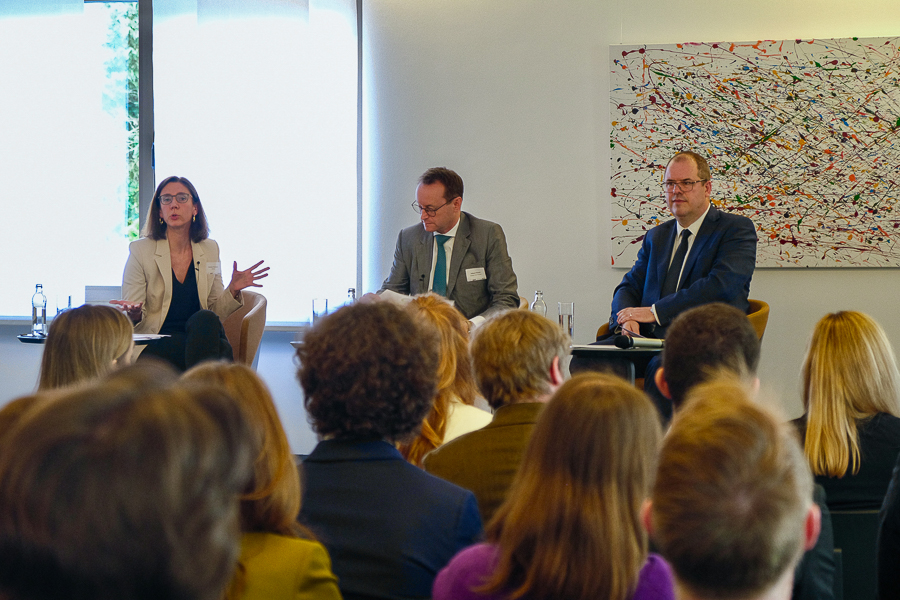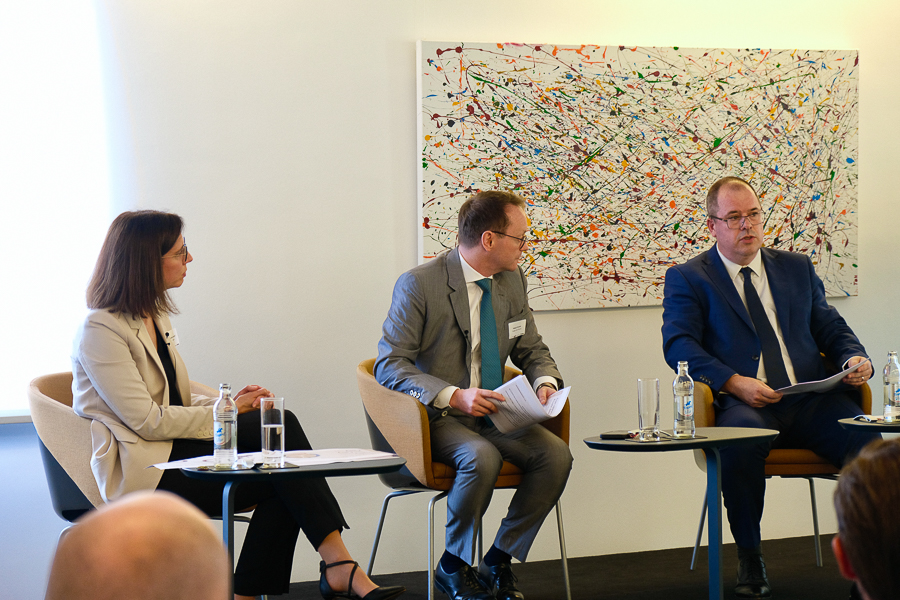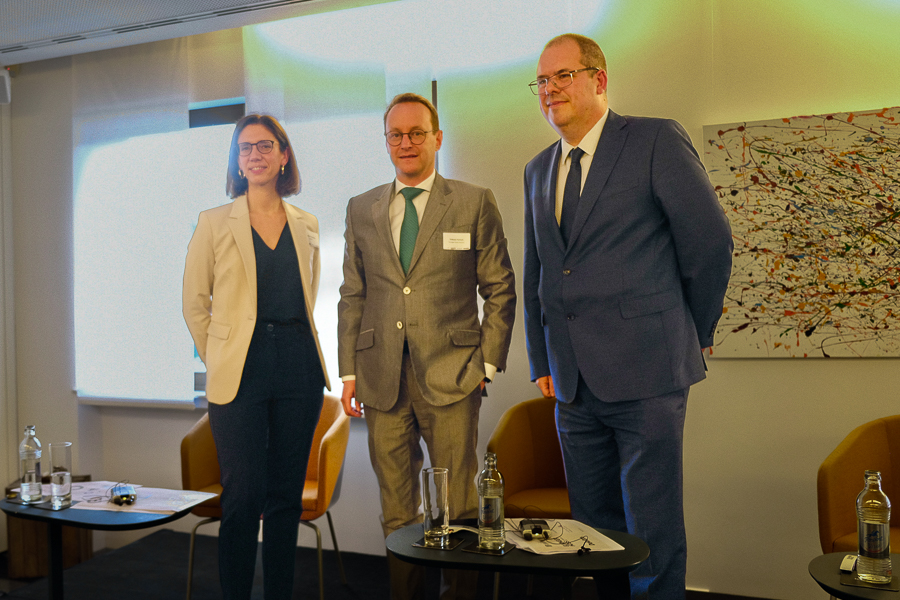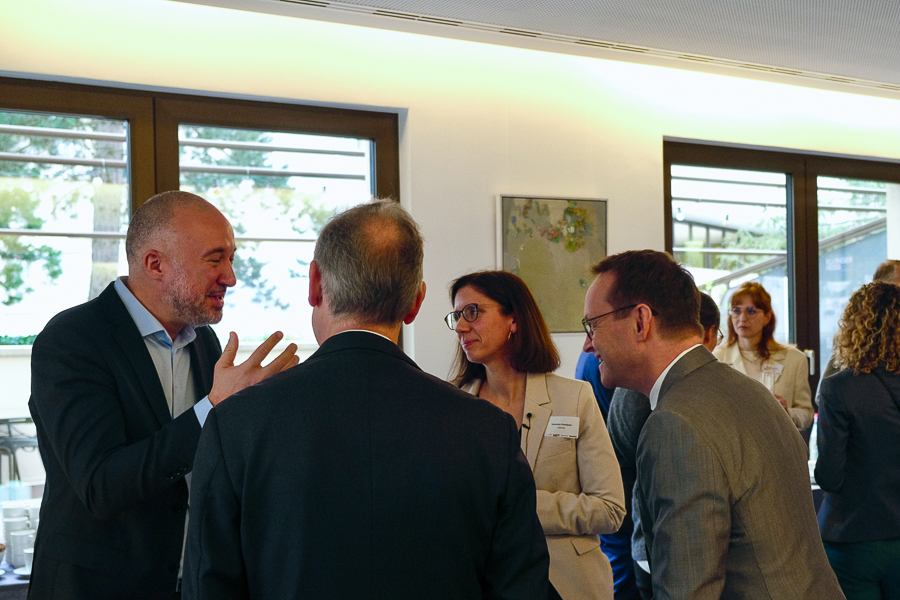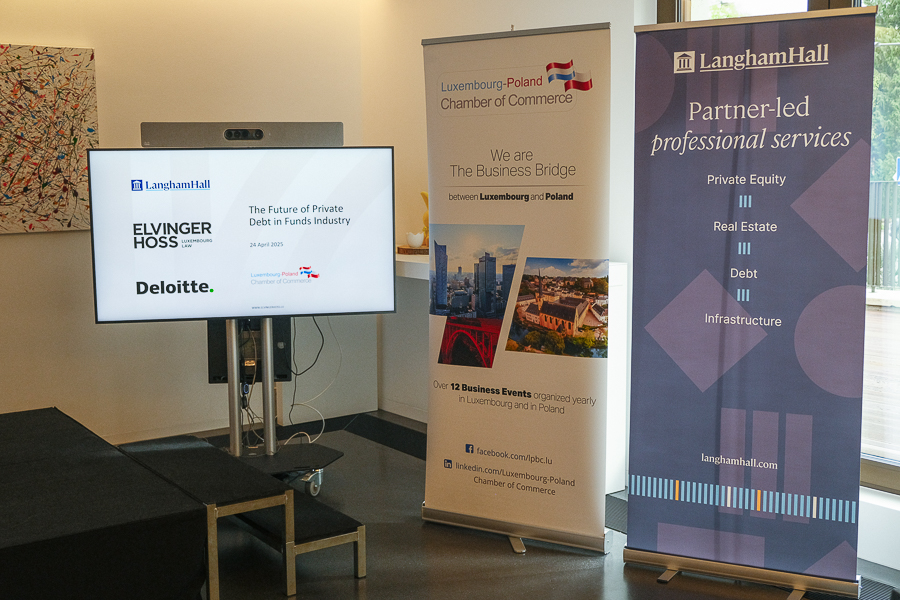 (L-R): Vanessa Vandaele, Partner at Deloitte; Thibaut Partsch, Partner at Elvinger Hoss Prussen; Ian Kent, Head of Fund Administration at Langham Hall.;
Credit: Steven Miller/Chronicle.lu
(L-R): Vanessa Vandaele, Partner at Deloitte; Thibaut Partsch, Partner at Elvinger Hoss Prussen; Ian Kent, Head of Fund Administration at Langham Hall.;
Credit: Steven Miller/Chronicle.lu
On Thursday 24 April 2025, the Luxembourg-Poland Chamber of Commerce (LPCC) hosted an event exploring the evolving landscape of private debt, at the premises of Elvinger Hoss Prussen in Luxembourg-Ville.
The event, which attracted around 75 attendees, featured a panel discussion involving three speakers: Partner at Deloitte, Vanessa Vandaele; Partner at Elvinger Hoss Prussen, Thibaut Partsch; and Head of Fund Administration at Langham Hall, Ian Kent.
After a short networking breakfast, the panel discussed recent developments within the financial sector, regulatory frameworks and the practical aspects of structuring and managing private debt investments in the European market, as well as a number of key considerations for investors, including risk assessment and fund administration, in relation to Poland.
Vanessa Vandaele began by discussing the relatively low performance of the private debt market in Poland and the current lack of diversity in the transactions used to raise capital funding. Commenting on the profile of the market, she stated: “[This] is interesting because it seems that the current private debt market in Poland targets very few types of players, which means there is a huge market for opportunities.”
Thibaut Partsch then drew comparisons to the private debt market in Germany and how, despite the comparatively lower number of transactions in Poland, it is “a market which is full of growth potential and full of interesting companies” and that “there is a lot of value to be obtained in Poland in debt funds”.
Ian Kent reinforced this comparison and stated: “It is a very different market to some of the larger markets, whether it is Germany, France or the UK, which already face issues of saturation.” Emphasising the opportunities which Poland represented, he added: “A market such as Poland is in a different place and still has that opportunity for a first-time manager to come in and fund very successfully there.”
The conversation then turned to the subject of Luxembourg as a jurisdiction for funds and the benefits and challenges of the industry in the Grand Duchy. The speakers discussed issues such as taxation (treaties and rates), securitisation, experience in dealing with cross-border investment firms and tailoring fund structures to meet client requirements. Thibaut Partsch noted: “Luxembourg is an established player. It is relatively easy and quick to establish funds in Luxembourg. Our stability makes it easy.”
The next subject discussed by the panel related to Anti-Money Laundering (AML) and Know Your Customer (KYC) compliance, Foreign Exchange Rate (FX) exposure and the general principles around Service Level Agreements (SLA). Ian Kent talked of Luxembourg’s well-established reputation for robust AML and KYC enforcement and noted that “clients in the market are well aware of this”, adding “you can expect that a large institutional investor will have a department that is dedicated to supplying the [required] amount of information”. Mr Kent also emphasised the importance of the involvement of all parties in the process of defining SLAs. He noted: “If you have a good SLA, you should be extremely clear on the requirements of all the parties and the process flows and that takes a lot of thought.”
Audience members then asked a variety of questions in relation to fundraising experiences in Poland, communicating with Polish tax authorities and working with the differences in how Polish tax offices are structured in comparison to other countries.
The event concluded with a working lunch, where attendees were invited to enjoy drinks and refreshments while discussing the topics raised during the panel discussion.
SM

